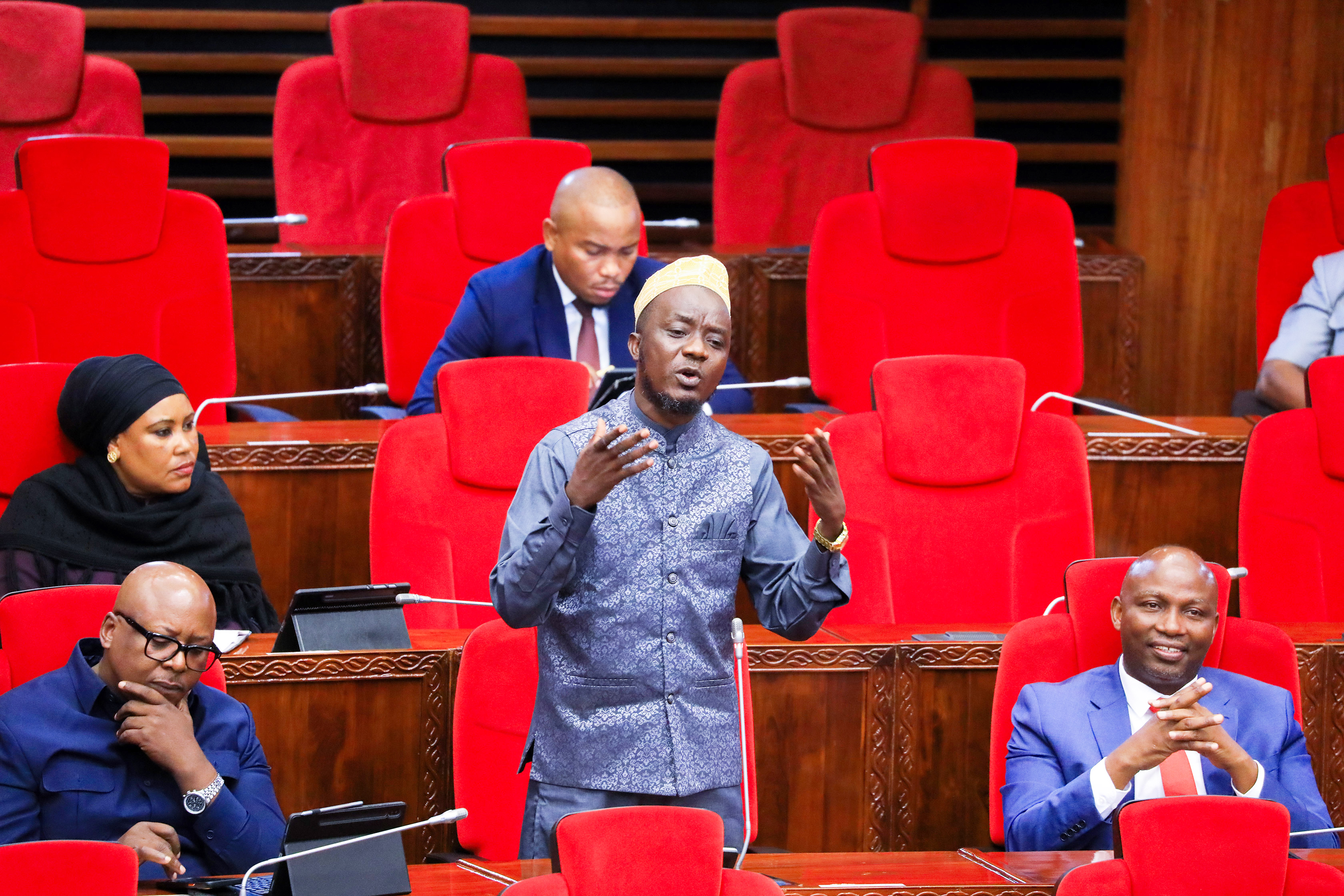Prime
CAG sounds alarm on Tanzania’s pension funds sustainability amid massive govt debts

What you need to know:
- Tabled in Parliament on Wednesday, April 16, 2024, the report shows that the government owes Sh3.57 trillion to the pension funds
Dar es Salaam. The Controller and Auditor General (CAG) has raised concerns about the sustainability of pension funds amid a rising government debt, which stood at Sh3.57 trillion in the 2023/24 financial year, according to newly released audit reports.
The concerns are detailed in the CAG’s audit report on public authorities and other bodies for the 2023/24 financial year.
Tabled in Parliament on Wednesday, April 16, 2024, the report shows that the government owes Sh3.57 trillion to the pension funds.
“A further review of the Pension Funds (National Social Security Fund - NSSF] and the [PSSSF) found long outstanding loan balances amounting to Sh3.57 trillion,” reads part of the CAG Charles Kichere report.
The document further shows that of the total amount, Sh2.28 trillion relates to liabilities inherited from the defunct Public Service Pension Fund (PSPF), which the government is expected to repay.
The remaining Sh1.29 trillion, the CAG said stems from loans issued to the government by pension schemes—including PSSSF and NSSF—with repayment periods ranging from one to 17 years.
NSSF’s loan stood at Sh1.06 trillion in the year ending June 30, 2024—a 29 percent drop from Sh1.5 trillion in 2022/23 with decline a result of the government’s issuance of non-cash bonds worth Sh433.71 billion to settle long-term debts.
Meanwhile, the PSSSF’s loand stood at Sh231.40 billion. Which has remained unpaid by 12 entities, some for up to 17 years, affecting fund solvency.
The CAG reiterated his call for the Finance Ministry to coordinate repayments and urged pension funds to strengthen internal reviews and follow-ups before and after disbursing loans.
Ministry of Finance reacts
Commenting on the matter, Finance ministry’s Head of Communications, Mr Ben Mwaipaja said the government paid Sh2.17 trillion in 2021 through a special bond, and Sh500 billion was paid in the recent instalment.
“The sixth-phase government has made significant efforts to ensure the sustainability of the pension funds by servicing a substantial amount in arrears and debt. The public, particularly beneficiaries, should remain confident as the government continues ensuring the funds serve their intended purpose efficiently,” he said.
While NSSF officials were unavailable for comment, a senior PSSSF officer, speaking on condition of anonymity, said the fund could not speak on the matter before the responsible minister addresses it in Parliament.
“However, I can confidently assure the public that the government is servicing the debt,” the officer added.
Despite these repayments, the CAG revealed that legal enforcement gaps have allowed Sh1.18 trillion in contribution receivables from eligible beneficiaries to remain uncollected by the pension funds; NSSF, PSSSF and Workers Compensation Fund (WCF).
The CAG further warned that the ballooning government debt, poor recovery of statutory contributions and uncollected returns from investments jeopardised the financial health of the pension schemes.
For instance, the report notes that NSSF failed to collect Sh19.52 billion in contractual rental income from tenants.

The University of Dodoma, a flagship public institution, was constructed through financing secured from pension funds.
“Such a balance could have been used for reinvestments,” reads part of the report.
Furthermore, the PSSSF has eight investments valued at Sh161.53 billion from which the fund has yet to earn returns due to delayed project completion.
The CAG warned that unpaid debts, failure to collect mandatory contributions, and missed investment returns adversely impact the liquidity of pension funds, compromising their ability to meet obligations and diminishing the value-for-money of investments.
Similar concerns over pension funds sustainability were raised early last year by the Parliamentary Social Welfare and Community Development Committee, which directed the government to develop implementable strategies to service its debts to social security funds.
Parliamentary committee once cautioned about mounting debts
Presenting its 2023 performance report in Parliament, the committee said realistic repayment plans would help rescue the financial health of pension schemes.
Committee chairperson, Ms Fatma Toufiq (Special Seats–CCM), noted that retirees continue to face delays in the disbursement of benefits due to cash flow constraints experienced by pension funds.
“This challenge stems from accumulated contribution arrears by some employers and longstanding debts owed by the government. It ultimately hinders effective delivery of pension services,” she told the august House.
Ms Toufiq urged the NSSF to enforce stricter legal measures against non-compliant employers—particularly those who under-declare salaries, avoid issuing formal employment contracts, and register fewer employees than they actually employ.
“NSSF should speed up member registration and reinstate healthcare benefits for informal sector workers as an incentive to attract new members,” she added.
In 2023, the government paid Sh2.17 trillion to the PSSSF to service long-standing debts accrued over 20 years.
As of September 2023, the outstanding balance stood at Sh2.45 trillion which included Sh500 billion paid to reduce a Sh731.4 billion loan issued before the 2018 pension fund merger.
The now-defunct PSPF, along with Provident Pension Fund, Local Authorities Pension Fund (LAPF) and Government Employees Provident Fund (GEPF) were then merged in 2018 to form what is now known as PSSSF.
Loans financed construction of tertiary institutions
According to PSSSF, the government loans financed key public projects, including the parliament complex in Dodoma, the local government training institute, the Nelson Mandela Institute of Science and Technology, and the University of Dodoma (Udom).
The fund said that these repayments have strengthened its capacity to serve beneficiaries, with the number expected to reach 11,000 by the end of the 2023/24 financial year.
PSSSF also reported that its total value had grown by 27.76 percent—from Sh5.83 trillion in July 2018 to Sh8.07 trillion in June 2023—supported by strategic investments.
The fund’s investment value reached Sh7.92 trillion in 2023, up from Sh6.4 trillion in 2018—a 23.5 percent increase.
Of the total portfolio, 60 percent is invested in government bonds and 15 percent in real estate.
PSSSF said its office property occupancy rate currently stands at 72 percent, with expectations to reach 80 percent by the end of the 2023/24 fiscal year.
Since 2018, the fund has paid out 262,095 member claims worth Sh8.88 trillion.
In the first two years alone, it disbursed Sh1.03 trillion to 10,273 beneficiaries from all the consolidated schemes.
Meanwhile, the CAG audit revealed that government entities and public parastatals owe NSSF a total of Sh1.174 trillion—including both principal and accrued interest—covering the period from 2008 to 2022.




